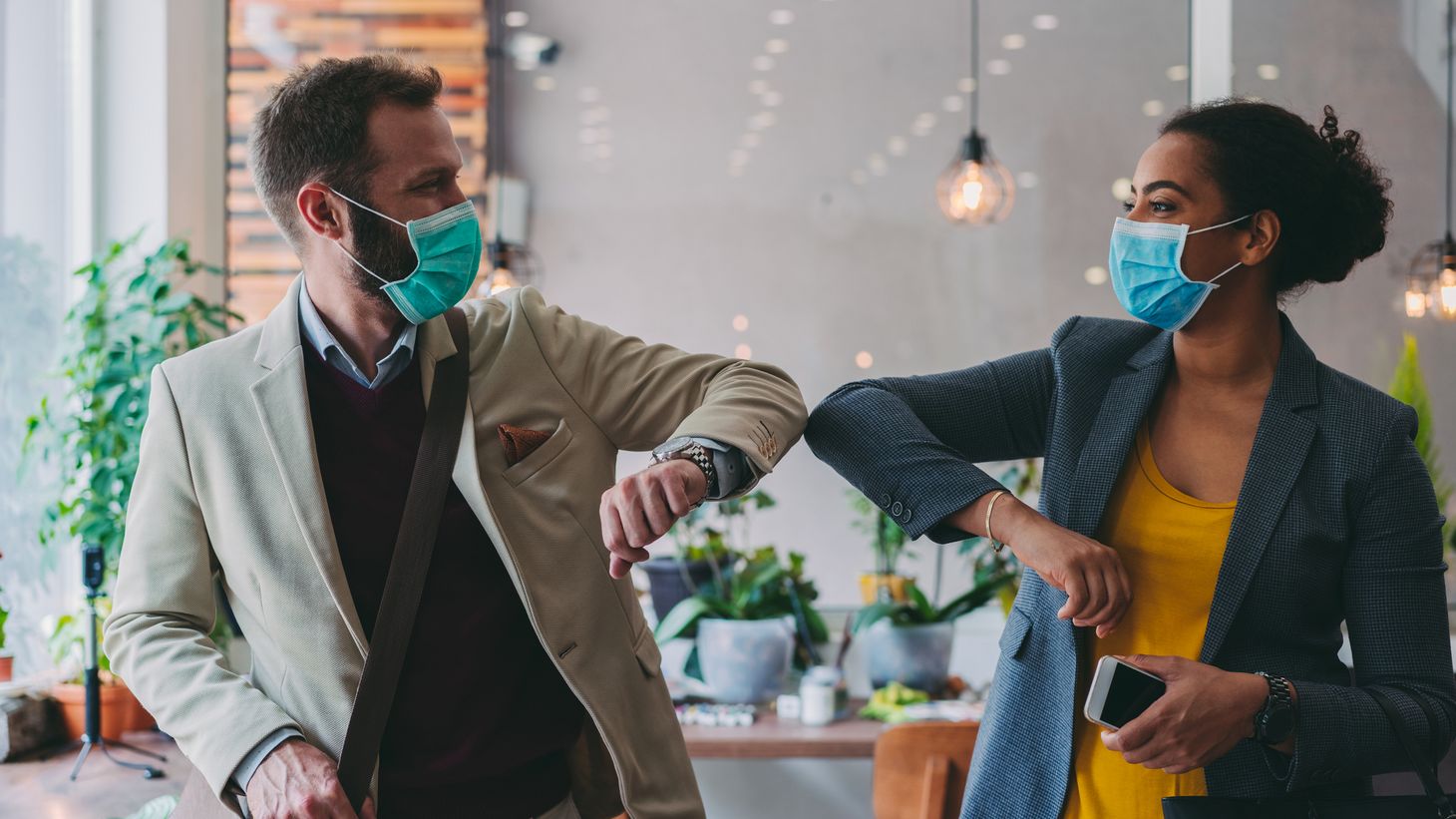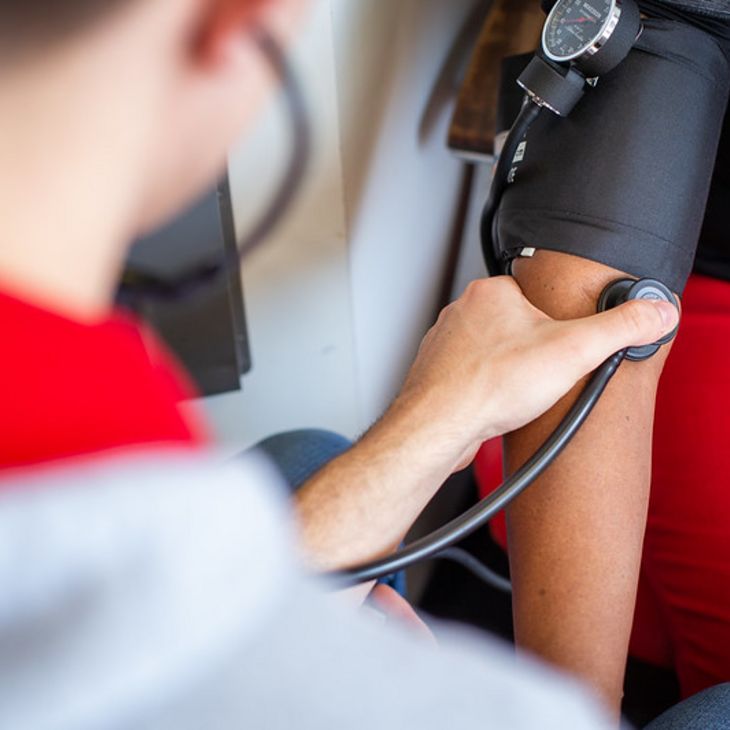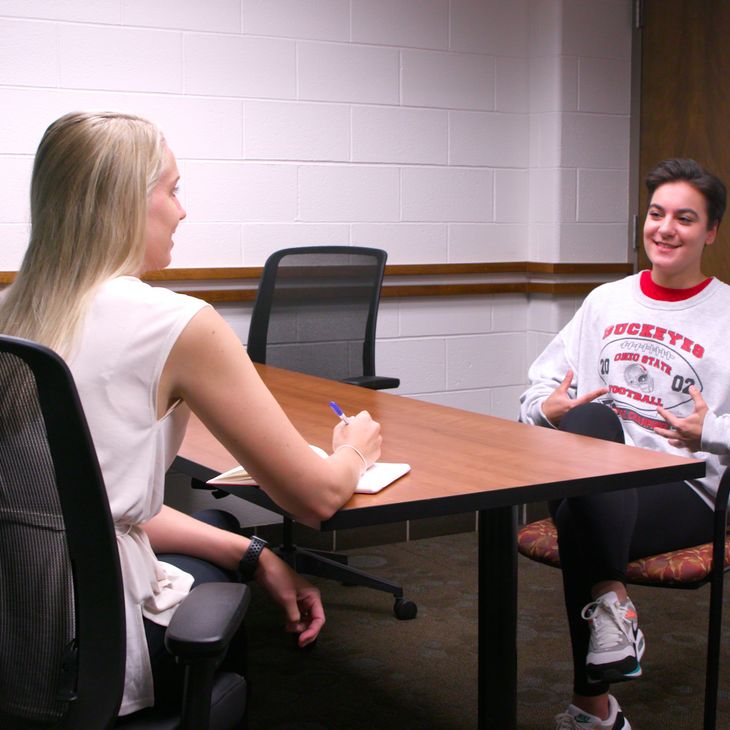Review of current best evidence led by scientists at The Ohio State University
Healthcare scientists at The Ohio State University’s Office of the Chief Wellness Officer, College of Nursing and College of Public Health have released new, evidence-based recommendations based on current best evidence that can help organizers of professional meetings and events return to in-person gatherings safely.
The review relies on science and guidance from trusted sources, including the Centers for Disease Control and Prevention (CDC), the Journal of the American Medical Association (JAMA) Network and Health Affairs. It examines mitigation and risk factors associated with mask wearing, physical distancing, ventilation, meal distribution, surface cleaning and more.
Among the key evidence-based recommendations are:
- Masks: Require masks for all unvaccinated individuals; masks encouraged but not required for vaccinated individuals
- Physical Distancing: Fully vaccinated people do not need to physically distance from others except where required by laws/rules/regulations. If the event will include non-vaccinated attendees, the authors recommend that organizers mandate a six-foot distancing policy coupled with mask use. If meetings and events require proof of vaccination, attendees would not need to physically distance.
- Food and drink: Consider pre-packaged meals with low-touch distribution methods
- Ventilation and surfaces: Evaluate ventilation systems to ensure that occupancy at meetings and events does not exceed allowable airflow rate standards; follow CDC recommendations on disinfecting and cleaning surfaces in conjunction with encouraging good hand hygiene (i.e. washing hands for 20 seconds)
- Lifestyle behaviors: Promote individual healthy lifestyle behaviors that can boost the immune system’s protection against infection.
“Getting back to our pre-pandemic ways of doing business must include taking evidence-based tactics we learned during the pandemic to keep people safe and healthy,” said Bernadette Melnyk, PhD, APRN-CNP, FAANP, FNAP, FAAN, vice president for health promotion, university chief wellness officer and dean of the College of Nursing at The Ohio State University, who was a co-author on the recommendations. “We must continue to follow the best evolving science as we make plans to hold large in-person events again.
“The light at the end of the pandemic tunnel gets brighter with every passing day and every vaccination that is administered. These recommendations will help ensure that conducting business and protecting health and well-being go hand-in-hand.”
“One of the lasting impacts of the pandemic, we believe, will be in how people focus more sharply on their own wellness,” said Megan Amaya, PhD, associate professor of clinical nursing and director of health promotion and wellness at The Ohio State University College of Nursing who served as lead author of the report. “In crafting these recommendations, we are both standing on a foundation of solid science and empowering people to take the steps they need to take to enhance their own well-being.”
Face-to-face meetings and conferences represent a large sector of the economy. An analysis by the U.S. Travel Association found that in 2019 – before the effects of the pandemic took hold – business travel generated $791 billion in economic output and supported nearly five million jobs in the U.S.
“Organizations and companies are eager to return to professional travel and safely reconnect with valued colleagues and clients,” said Roger Dow, president and CEO of the U.S. Travel Association. “This scientific review and the organized, science-based recommendations it produced are critical to infusing confidence and optimism into a key sector of our economy.”
The scientific review concludes, “Business travel going forward will require a multi-pronged approach where the physical and mental health of traveling employees, health and safety precautions and economic factors are carefully considered. Although the process will take time, patience and perseverance, for the past 15 months, we have learned to cope well with unprecedented changes.”
Photo credit: Getty Images




